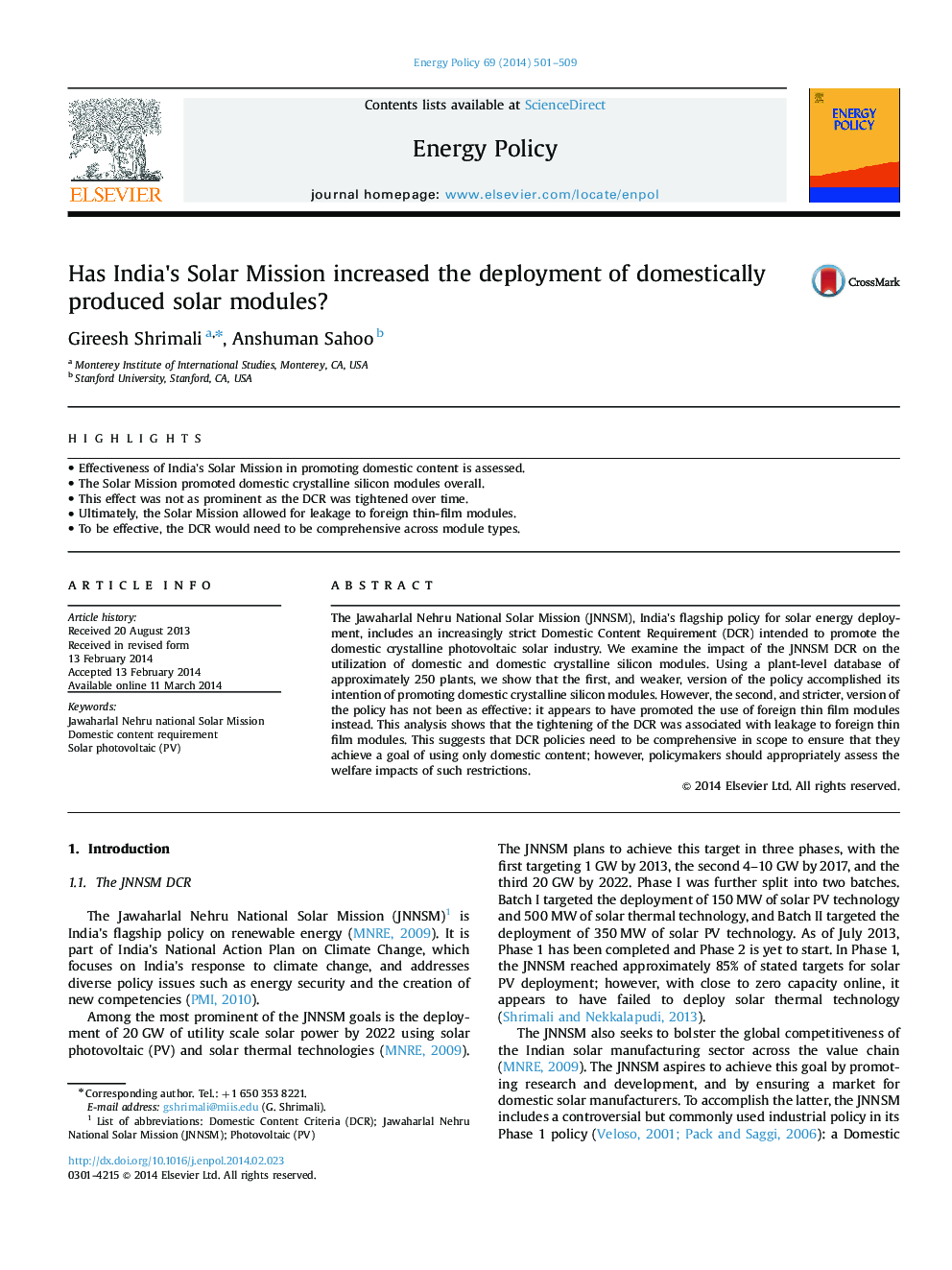| Article ID | Journal | Published Year | Pages | File Type |
|---|---|---|---|---|
| 992926 | Energy Policy | 2014 | 9 Pages |
•Effectiveness of India׳s Solar Mission in promoting domestic content is assessed.•The Solar Mission promoted domestic crystalline silicon modules overall.•This effect was not as prominent as the DCR was tightened over time.•Ultimately, the Solar Mission allowed for leakage to foreign thin-film modules.•To be effective, the DCR would need to be comprehensive across module types.
The Jawaharlal Nehru National Solar Mission (JNNSM), India׳s flagship policy for solar energy deployment, includes an increasingly strict Domestic Content Requirement (DCR) intended to promote the domestic crystalline photovoltaic solar industry. We examine the impact of the JNNSM DCR on the utilization of domestic and domestic crystalline silicon modules. Using a plant-level database of approximately 250 plants, we show that the first, and weaker, version of the policy accomplished its intention of promoting domestic crystalline silicon modules. However, the second, and stricter, version of the policy has not been as effective: it appears to have promoted the use of foreign thin film modules instead. This analysis shows that the tightening of the DCR was associated with leakage to foreign thin film modules. This suggests that DCR policies need to be comprehensive in scope to ensure that they achieve a goal of using only domestic content; however, policymakers should appropriately assess the welfare impacts of such restrictions.
